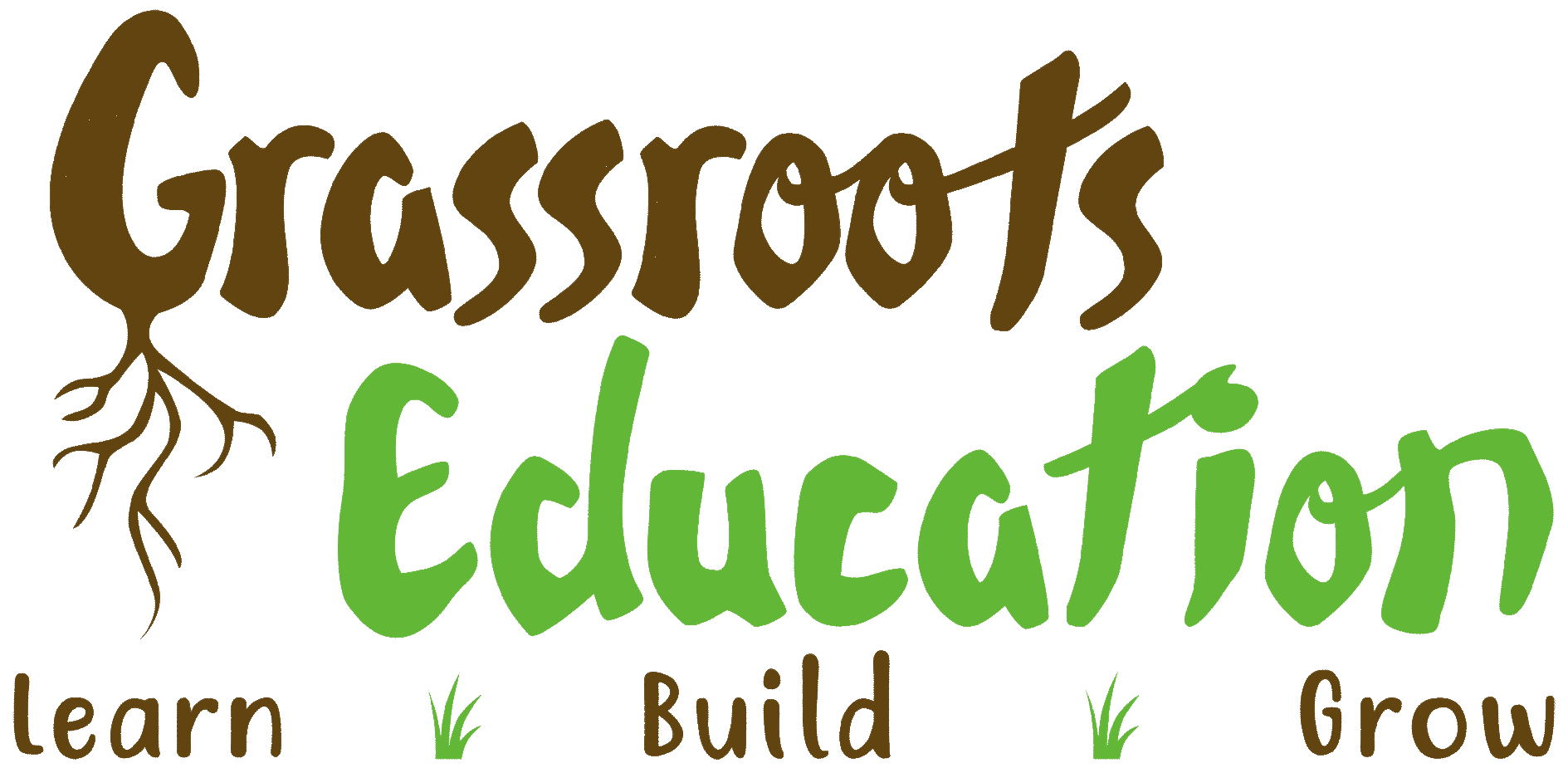
by Marcia Davis-Dawkins | Mar 22, 2018 | Education, Kids, Parents, Teachers, Teens
Perpetually Grateful

By Dr. Marcia Davis-Dawkins
Showing appreciation…
It has always confounded me that some people find it difficult to say “thank you” when they are given something. Showing appreciation just seems like the normal thing to do, but for some people it’s really arduous. I have had the opportunity recently to examine that for which I am grateful– things that I take for granted. What might seem trivial to some, but not to others – being able to breathe, see, talk, walk, have a place to live or even have a job. I believe that we should consider everything and every circumstance as a blessing, and therefore be grateful. We should not lose sight of gratefulness. I think it takes much effort to be thankful, but with constant practice it can become a habit.
How do I see being thankful? I believe that as I journey through life and its processes, I accept that everything I do and experience is for a reason and there is a lesson to be learned. Accordingly, I have begun looking for the lesson to be learned. It also means stepping back and reflecting on the experiences so I can elicit those lessons and then give thanks. I am reminded of a song that we. sang in the choir, by Brooklyn Tabernacle Choir, that says “In Everything Give Him Thanks” and it further instructs to “give thanks in the good times, in the bad times, let’s do the same.” It means that even when my childhood friend of many years is critically ill, and I am miles away from her and feeling helpless, I should not be paralyzed with sadness and remain idle. I can still be grateful that I know her, have shared amazing times with her, learned countless things from her, spent many quality times with her, shared laughters, secrets and even tears. I am grateful for the friendship we have and I know that we have grown even closer in the last six months since her cancer diagnosis. In fact, we have a group of five ‘friends  forever’ with whom we have a special bond and we celebrate our friendship and compassion for each other. I am thankful for the values we were taught by our parents to pray together, sing together, share our family difficulties together and tried to work out solutions. This empathy that we share is plenty for which to be thankful. We are always there for each other, in good times and in bad.One of the things that I hear is that even though our friend is sick, she always utter how grateful she is. A member of our team of the “friends forever” is always at the hospital helping our sick friend. We are giving thanks for her dedication and love. This love sincerely is from the love of God. Hence, we can pass on these special attributes to our children, students, and co-workers, reminding them daily that in the end, it is not what we possess, but what we shared, that is significant.
forever’ with whom we have a special bond and we celebrate our friendship and compassion for each other. I am thankful for the values we were taught by our parents to pray together, sing together, share our family difficulties together and tried to work out solutions. This empathy that we share is plenty for which to be thankful. We are always there for each other, in good times and in bad.One of the things that I hear is that even though our friend is sick, she always utter how grateful she is. A member of our team of the “friends forever” is always at the hospital helping our sick friend. We are giving thanks for her dedication and love. This love sincerely is from the love of God. Hence, we can pass on these special attributes to our children, students, and co-workers, reminding them daily that in the end, it is not what we possess, but what we shared, that is significant.
As humans we tend to be complainers, but we need to find something to be more appreciative about in EVERYTHING!!!! I am reminded of the old adage that some people see the glass half full, while others see the glass half empty.
 It is time to be enlightened and simply be grateful to have a glass.
It is time to be enlightened and simply be grateful to have a glass.
Being an educator, we often feel overwhelmed with issues we face with our students whom we deem “unteachable” due to learning disabilities or because of behavior problems, but at times we can learn so much from the experiences we encounter. We are so caught up that we forget to stop and to be grateful for the challenges or for the fact that we may be the one to help make a difference to that student. The experiences usually make us stronger.
Being grateful has started to give me a different viewpoint on life and my journey of being renewed and empowered. Join me on this journey of making our thanksgiving perpetual!
The Power of Words

by Marcia Davis-Dawkins | Mar 14, 2018 | Education, Kids, Parents, Teachers, Teens
Change Our Positions!
 By Dr. Marcia Davis-Dawkins
By Dr. Marcia Davis-Dawkins
Socrates once said, “The secret of change is to focus all your energy, not on fighting the old, but on building the new.” Change can be difficult and I am sure most people would agree that they have had regrets, things that they could redo if given the opportunity. There are others who would say, “What is the point of starting over, I am not good at this so why bother!” I beg to differ. Change means reinventing one’s self and while difficult, is often necessary and ultimately rewarding. Lives may need to be modified after a failed marriage, a failed relationship, losing a loved one through death, changing a career path, losing, or starting a new job. In essence, change is usually a result of a heart being broken or a mind being opened. Some might say, why change when I am so old? In response, I am reminded of C. S. Lewis’ quote “You are never too old to set another goal or to dream a new dream.” 
Change is new process in our lives.
Why might adjustment be necessary? I learned to drive using a stick shift and it was very intense. I clearly remember the driving instructor saying that I should listen to the engine as this was an indicator that the gear needed to be changed after it reached a certain rev count. Sometimes in our personal lives, we need to change because the rev count is different. We need to change the way we think. We want to be transformed by the renewing of our minds. Many people use a new season to take inventory of their lives and try to change situations. For me the season is springtime, when there is a new burst of energy, new growth, new buds, freshness, birds chirping, simply newness. Springtime is especially meaningful for me since it’s when I celebrate my birthday. This year, I want to change from inside out. I will become more beautiful and set myself free, free to soar to new heights. Transition and difference describe the process that occurs within each of us when change happens. I firmly believe that it’s all about the process. What goes on within us as we go through the changes include the pats on the back, having “aha” moments, the getting to know self, and the skepticisms from people. But through it all I know that one of the things that makes a difference in the change process is to avoid and ignore people with negative vibes and surround myself/ourselves with positive people. Change means immersing yourself with people who will encourage and pat us on back. It also means doing more positive self-talk, setting positive affirmations and pushing in the direction where you are heading. This enables us to refocus, while celebrating the little steps made and shifting our attention on the goals set. Just because we started down one path does not mean that we need to finish on the same path. We have the power to say this is not the final destination, that this is not how the story ends. That type of thinking gives us validity to shift directions and allows for metamorphosis.
How do we relate to change in education?

If we have been teaching for a while, we realize that things are always changing – there is change in the curriculum, change in state tests, change in grade level that is taught, change in leadership, and redistricting. How do we adjust to the various changes? Generally, we adopt by changing our mindset and think positively and press towards the goals. We anticipate and adjust the process of transition and avoid resisting the change so that life can be productive. Let us let go of the past – guilt, anger love, loss, or betrayal and fight to move on –MAKE the CHANGE!
It’s Never Too Late To Start Over

by Marcia Davis-Dawkins | Mar 6, 2018 | Education, Parents, Teachers, Teens
No Man Is An Island
by Dr. Marcia Davis-Dawkins
Over 400 years ago, John Donne penned the poem “No Man Is An Island” and several others, including Joan Baez and Dennis Brown, have followed up with songs of a similar title. In his poem, Dunne compared suffering to gold, arguing that we can never have enough of our neighbors’ pain: “No man hath affliction enough that is not matured and ripened by it.” In other words, he feels that no one suffers alone, and being aware of another’s pain only makes us stronger and more able to live. In a world where it seems as if people are selfish and think only of themselves, it is vitally important to remember:
Togetherness and Collaboration
 The words emphasize that we should encourage unity, togetherness and collaboration. We need each other, even when we think we don’t. People can encourage us daily, especially when we surround ourselves with positive ones.
The words emphasize that we should encourage unity, togetherness and collaboration. We need each other, even when we think we don’t. People can encourage us daily, especially when we surround ourselves with positive ones.
Many of us might think that we can do better by ourselves, and we think we don’t need families, friends or co-workers. The truth is, however, that we do! No one is truly self-sufficient. Humans cannot get along with their lives alone and succeed. We are all dependent on others and can’t thrive by being alone. We were created to be encouraging to each and this is supported in the Bible: Romans 12:4-5, ESV For as in one body we have many members, and the members do not all have the same function, so we, though many, are one body in Christ, and individually members one of another. This verse is emphasizing that because we are not good at everything and no matter how young, old, our racial ethnicity, our economic status, or our residence – we need each other.
As educators, we are called to reach ALL students
As educators, we are called to reach ALL students – which means that we have to collaborate and encourage each other and help each other to succeed and when we do so, our students reap the benefits. Teaching can be rewarding, but also extremely demanding and stressful. Fostering camaraderie crea tes a positive culture where staff is enthusiastic, positive and supportive of each other and work together to accomplish the goals of the district. We can share ideas, or as often referred to ,“borrow ideas” from each other. No one is perfect, so we should share seeds of love gently. See the best in everyone – co-workers and children as well as students. We should be committed to our career, co-workers, students and do the best job that we can, regardless of what others may feel or think. Again, the Bible makes reference of togetherness in Romans 12:16, NLT Live in harmony with each other. Don’t be too proud to enjoy the company of ordinary people. And don’t think you know it all!
tes a positive culture where staff is enthusiastic, positive and supportive of each other and work together to accomplish the goals of the district. We can share ideas, or as often referred to ,“borrow ideas” from each other. No one is perfect, so we should share seeds of love gently. See the best in everyone – co-workers and children as well as students. We should be committed to our career, co-workers, students and do the best job that we can, regardless of what others may feel or think. Again, the Bible makes reference of togetherness in Romans 12:16, NLT Live in harmony with each other. Don’t be too proud to enjoy the company of ordinary people. And don’t think you know it all!
Below are the lyrics of John Donne, Joan Baez and Dennis Brown whose poem and songs emphasize that we all need each other.
No Man Is An Island – John Donne
No man is an island entire of itself;
every man is a piece of the continent, a part of the main;
if a clod be washed away by the sea, Europe is the less, as well as if a promontory were, as well as any manner of thy friends or of thine own were;
any man’s death diminishes me, because I am involved in mankind. And therefore never send to know for whom the bell tolls;
it tolls for thee.
No Man Is an Island
Joan Baez
No man is an island,
No man stands alone,
Each man’s joy is joy to me,
Each man’s grief is my own.
We need one another,
So I will defend,
Each man as my brother,
Each man as my friend.
I saw the people gather,
I heard the music start,
The song that they were singing,
Is ringing in my heart.
No man is an island,
Way out in the blue,
We all look to the one above,
For our strength to renew.
When I help my brother,
Then I know that I,
Plant the seed of friendship,
That will never die.
Songwriters: Peter Schickele
No Man Is an Island lyrics © Universal Music Publishing Group
No Man Is An Island by Dennis Brown
No man is an island
No man stands alone
Each man has a brother
And remember
Each man’s dream has a road
Now we need one another ooh yes
And we all try to be friends
Each man has a brother
And a each man has a friend
You can live in this world all by yourself
In this world all by yourself
No nonoooo you can’t make it alone
And just as sure as you try to make it by yourself
You gonna wake up and find you gonna need somebody else
No man is an island
No man stands alone
Each man has a brother
And remember
Each man’s dream has a road
Friendship

by Marcia Davis-Dawkins | Feb 27, 2018 | Education, Kids, Parents, Teachers
It’s Never Too Late To Start Over

by Marcia Davis-Dawkins
Frank Sinatra once said, “So take a deep breath, pick yourself up, dust yourself off, start all over again.” No one likes to start over, but it usually makes more sense to start fresh. Starting over may mean creating something new and better. It might take a lot of patience or figuring out things. It can be tough just to start from the beginning, but the good thing about it is that you don’t need a new day. You are required to have a different prospective on things so you can stay focused and look towards the future and what your goals in life are. We have to believe in ourselves and realize that we have more potential than we think. We can be scared to fail, but we can pick ourselves up and start the process anew.
Perhaps you don’t have a class that you consider the “perfect class” this year. There is always the possibility of starting on a clean slate come September. Maybe you have to begin a new job in another location or you have a new capacity. Maybe you are going through a painful divorce and you are now single with children. Yet another scenario can be that you are now married and have to live a different lifestyle where you now you accountable for another human being. The possibilities are endless! Whatever the situation, you are given a second chance to work at whatever situation in which you are involved. Though devastating the situation, you have to find a way to walk in your path and make the best that you can with what you have. Many might feel like throwing in the towel and wallow in self-pity, but that should not be the path to take.
You might think that age or time is a stumbling block
You might think that age or time is a stumbling block, but divine timing is key. You can succeed against all odds and you must remember that you are not  responsible for your timing and what happens in your life. It’s never too late to do something you love – study, learn to play an instrument or even expand your career.
responsible for your timing and what happens in your life. It’s never too late to do something you love – study, learn to play an instrument or even expand your career.
The idea is that you should learn from your mistakes, move on from the part of failure and look towards new goals, new ideas, new locations and new journeys. Have positive thoughts, rise above the daunting experiences and look toward the bright future. Keep your mindset positive and keep your head above water because there is a light at the end of the tunnel and it’s not a train. Yes, you might have regrets, but they guide you to better decision-making. It’s never too late. Just look towards the future and do it right the next time around. Of course, it might be rough and tough to start over, but be encouraged, stay focused and seize the moment to start over! Be patient; take one step at a time.
Education and Success

by Marcia Davis-Dawkins | Feb 21, 2018 | Education, Kids, Parents, Teachers
One Day At A Time, One Student At A Time
 By Dr. Marcia Davis-Dawkins
By Dr. Marcia Davis-Dawkins
One Day At A Time. It’s easy to say that life can be very overwhelming, so much so that we have to remind ourselves to take a breather and live for the moment. Far too often we spend most, if not all, of our waking hours worrying about things over which we have no control. Most of us are guilty and we don’t have time to live for the moment. Stress can hinder us from succeeding or moving forward. The strains and frustrations that challenge us daily can be daunting and tedious. We struggle and find ourselves trying to lift our heads above waters.
As adults we can do certain things to prevent feeling overwhelmed or frustrated. One important bit of advice is to try not to think about what can happen in a month or a year. Concentrate on the twenty-four hours in front of us and do what we can to get closer to where we want to be. Other tactics to follow include, but  are not limited to:
are not limited to:
- Get plenty of rest in the form of sleep.
- Exercise regularly (at least three times a week).
- Set SMART goals
- Invest and keep a planner so things that have to done can be seen at a glance and act as reminders
- Check things off as they are done, concentrating on the most important tasks that take precedence and will foster a sense of accomplishment
- Meditate/practice yoga
How do we as adults/educators teach our students to live one day at a time?

How do we as adults/educators teach our students to live one day at a time , or take even one moment at a time? Often times as we are teaching, we try to finish everything according to our lesson plan. We are rushing to finish the curriculum so they can be ready for the standardized tests, but are we pushing them too much? Do we try to integrate brain breaks in our lessons? We could incorporate William Glasser’s Theory, where the teaching approach spotlights problem-solving and making better choices in order to achieve specific goals. It focuses on the here and now instead of the past. Basically, William Glasser’s Theory should convince us to understand that the worst classroom behaviors are chosen by students who have lost control. We should establish a learning environment in which each student feels like a key person in a group and where teacher-student interactions validate and support self-esteem. This involves taking care of routine details, having a clear set of logical standards and systematically following them and wanting others to do so also. As teachers with rules and expectations, we can be more flexible and provide an environment where Glasser’s Theory is evident since we want to be more effective. We might not make a difference to all the students, but if we get at least one then our job will be done.
Role Models
n a sense, we should be role models in the classroom and live for the moment. Life is really too short to waste much time worrying or sweating the small stuff. Tomorrow is not promised, so we should live at peace with everyone. As a matter of fact, when we find ourselves worrying about what others say about us and even considering a rebuttal, we should think about choosing our battles – is it worth our time? Often it is not about having all the answers, but rather trusting ourselves, leaning in the direction of what feels right and focusing on living the day in front of us the best way we can.
HOME
The Teacher Who Makes a Difference!!!!!

by Marcia Davis-Dawkins | Feb 13, 2018 | Education, Kids, Parents, Teachers
The Power of Words II

by Dr. Marcia Davis-Dawkins
In a previous article, I wrote about The Power of Words and I am again mentioning words. You may be saying, “Here she goes again!” but how we communicate with each other and how effective it is to say what we mean and mean what we say is of the utmost importance to me. Since words have power, we should ensure that we use them carefully and wisely. As humans, we often struggle to say positive things. We have all heard the expression, “Sticks and stones may break my bones, but words can never hurt me.” This is saying that people can only hurt you physically, but not by the unpleasant things that are said. This is so far from the truth!! Unpleasant words have such a lasting effect on people. Words can either build us up or cut us down. We should therefore choose words that encourage, boost and fortify rather than demoralize, deject and disparage.
Our Words
Over the last few months or so I have had to think carefully what words I offer to friends who have lost loved ones or who have been sick.
Those times I have found myself authoring a text, but then reading it over several times before hitting the “send” button because I want to be conscious of the word choice so I don’t offend or seem insensitive. How many of us can honestly say that we mull over our thoughts before we hit the send button? Are our words encouraging or comforting? Are they building up? Are they sending the right message? In this age when social media is right at our fingertips, are we using it to help someone or to send disparaging messages? Do we hesitate and count to ten before we blow our tops? Do we think about the intention of our words? Let’s help to speak life over our lives, ou r friends, our families, our country, our students or anyone we come in contact with. Let us be positive. Even when we are remedying a situation or trying to give instructions, we should choose words that send messages of hope and devotion. Like most things it will take practice – practice to hold our tongues and speak only positive words. Additionally, when we are scolding our students, as educators, we have to choose our words wisely and gently, but also so that they will understand authority. We need to be cognizant of raising our words, not our voices, for those words land not only in the ears of our students, but also in their hearts. It is our responsibility to uplift our students with words that both help and heal, not hinder, hurt or humiliate. Proverbs 15:1 cautions: A soft answer turns away wrath but a harsh word stirs up anger. The choice is ours. Do we choose to be creative forces or destructive ones? The answer lies in the power of the word.
r friends, our families, our country, our students or anyone we come in contact with. Let us be positive. Even when we are remedying a situation or trying to give instructions, we should choose words that send messages of hope and devotion. Like most things it will take practice – practice to hold our tongues and speak only positive words. Additionally, when we are scolding our students, as educators, we have to choose our words wisely and gently, but also so that they will understand authority. We need to be cognizant of raising our words, not our voices, for those words land not only in the ears of our students, but also in their hearts. It is our responsibility to uplift our students with words that both help and heal, not hinder, hurt or humiliate. Proverbs 15:1 cautions: A soft answer turns away wrath but a harsh word stirs up anger. The choice is ours. Do we choose to be creative forces or destructive ones? The answer lies in the power of the word.
The Power of Words

 forever’ with whom we have a special bond and we celebrate our friendship and compassion for each other. I am thankful for the values we were taught by our parents to pray together, sing together, share our family difficulties together and tried to work out solutions. This empathy that we share is plenty for which to be thankful. We are always there for each other, in good times and in bad.One of the things that I hear is that even though our friend is sick, she always utter how grateful she is. A member of our team of the “friends forever” is always at the hospital helping our sick friend. We are giving thanks for her dedication and love. This love sincerely is from the love of God. Hence, we can pass on these special attributes to our children, students, and co-workers, reminding them daily that in the end, it is not what we possess, but what we shared, that is significant.
forever’ with whom we have a special bond and we celebrate our friendship and compassion for each other. I am thankful for the values we were taught by our parents to pray together, sing together, share our family difficulties together and tried to work out solutions. This empathy that we share is plenty for which to be thankful. We are always there for each other, in good times and in bad.One of the things that I hear is that even though our friend is sick, she always utter how grateful she is. A member of our team of the “friends forever” is always at the hospital helping our sick friend. We are giving thanks for her dedication and love. This love sincerely is from the love of God. Hence, we can pass on these special attributes to our children, students, and co-workers, reminding them daily that in the end, it is not what we possess, but what we shared, that is significant. It is time to be enlightened and simply be grateful to have a glass.
It is time to be enlightened and simply be grateful to have a glass.














